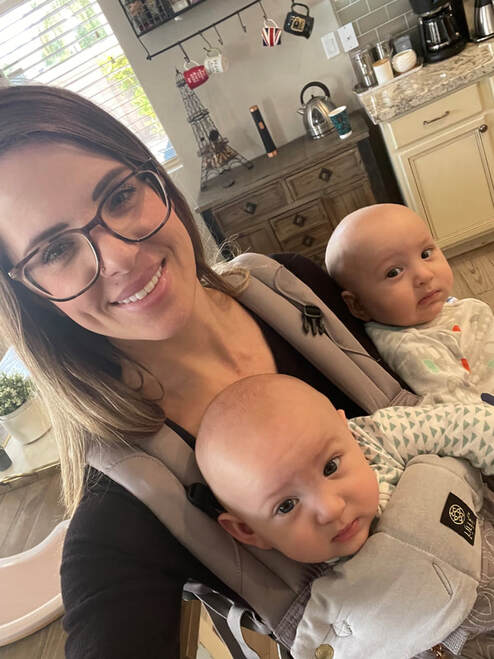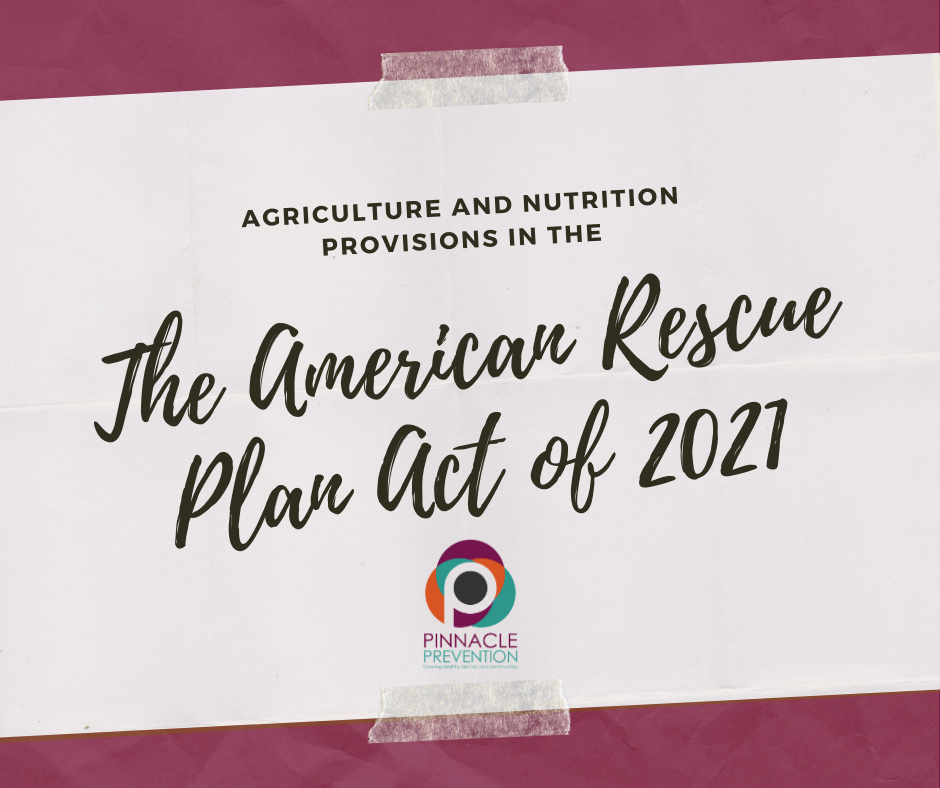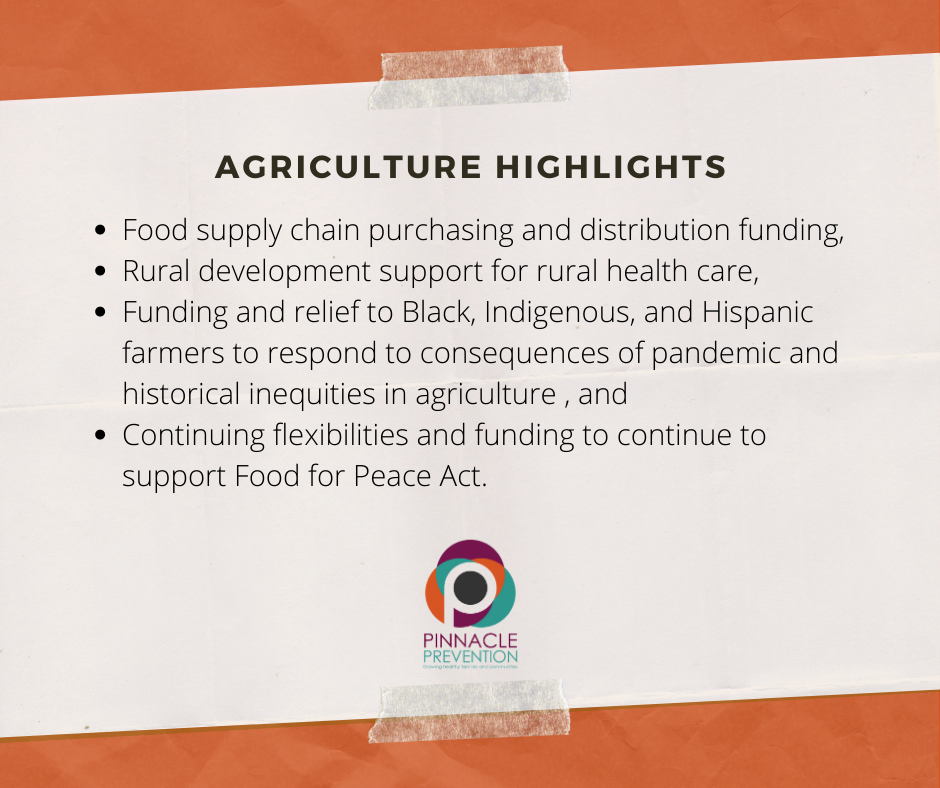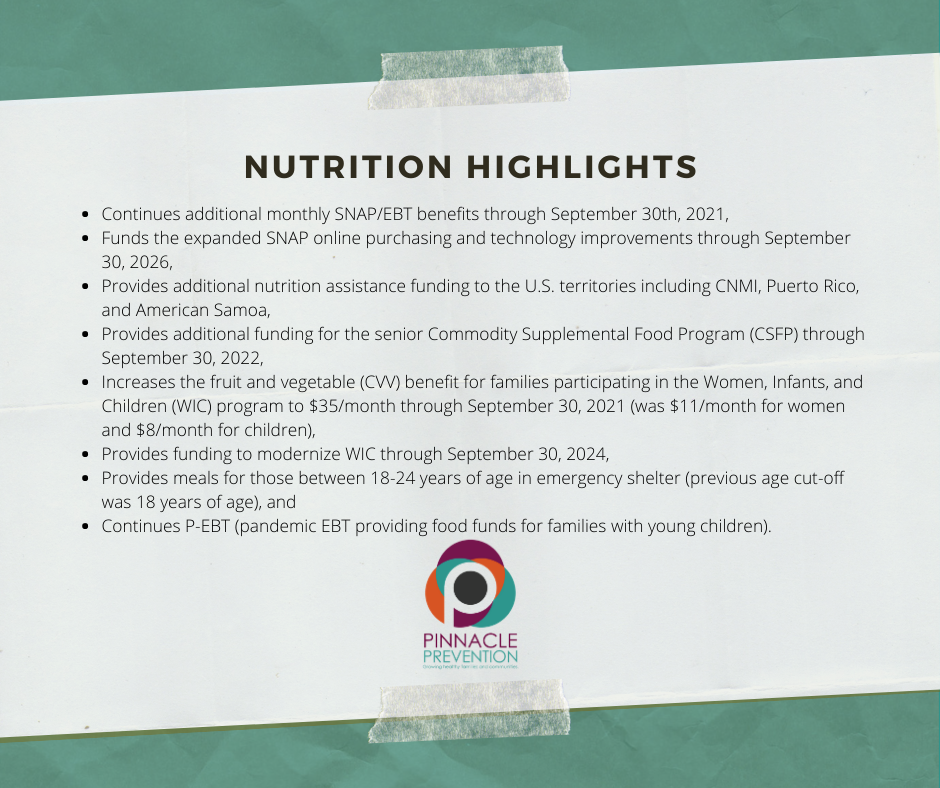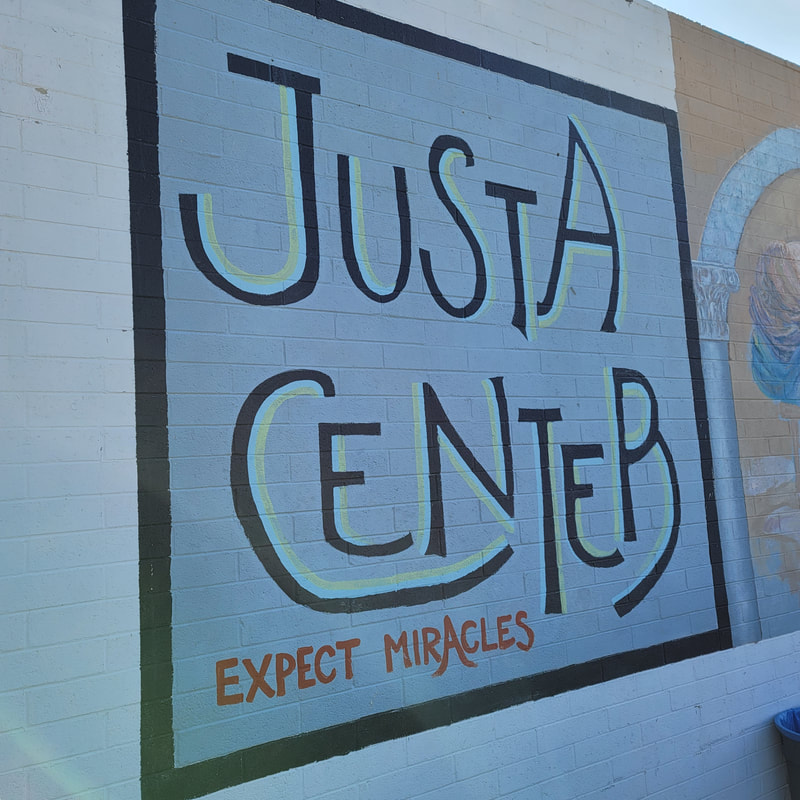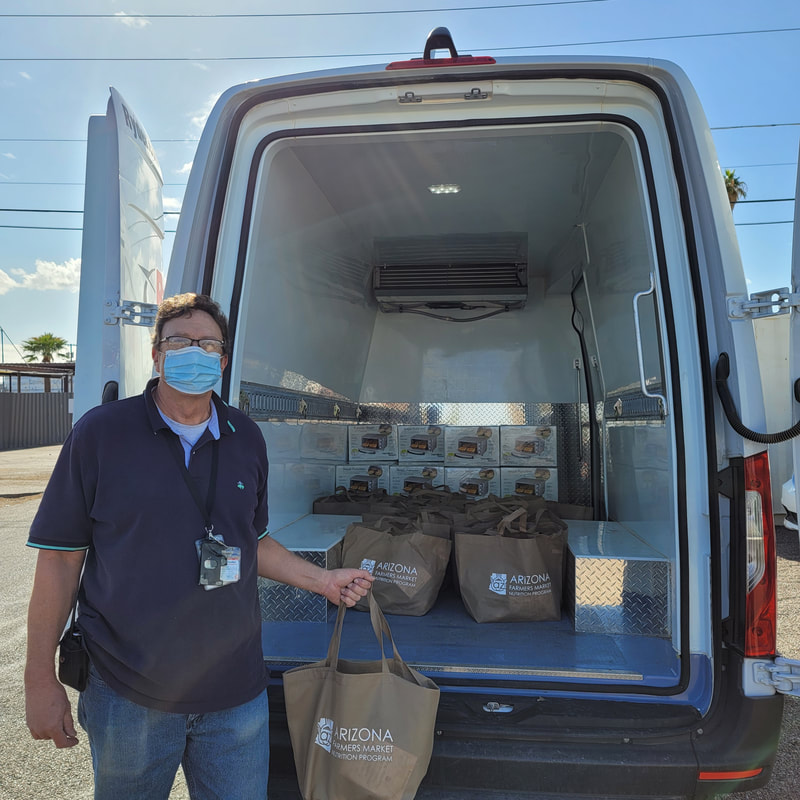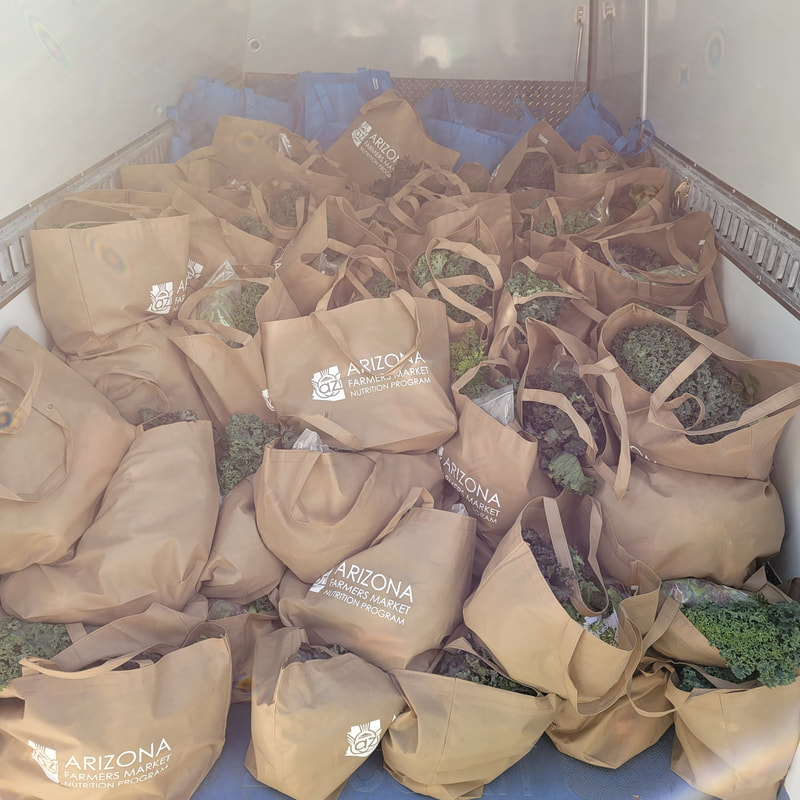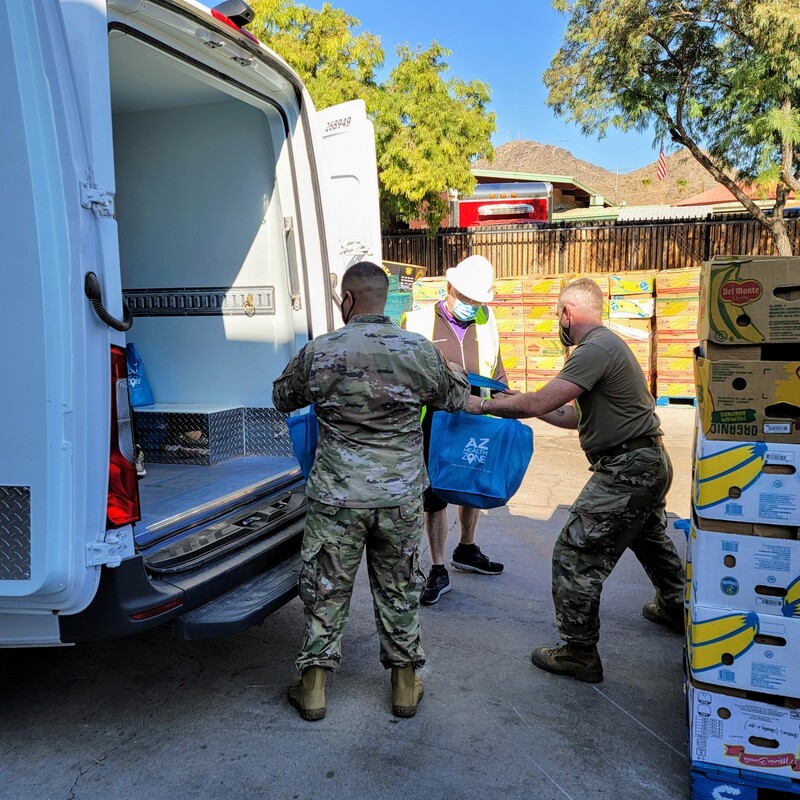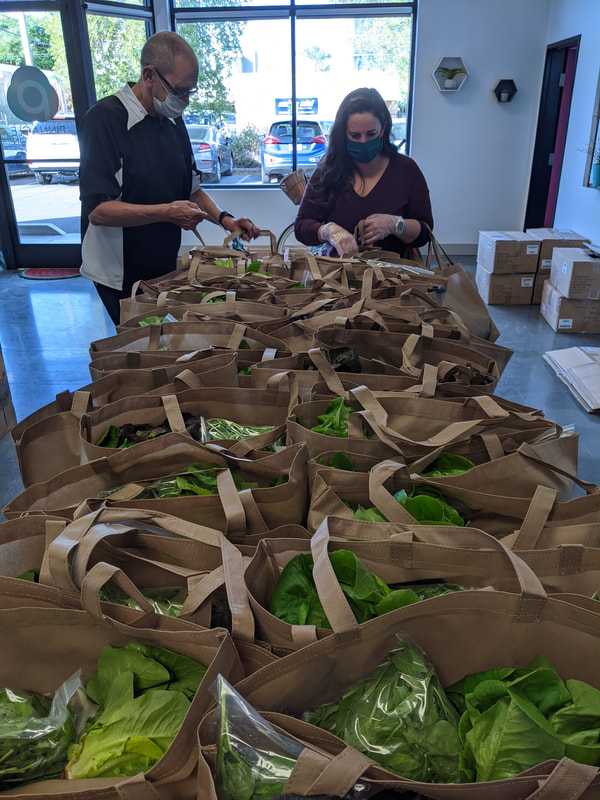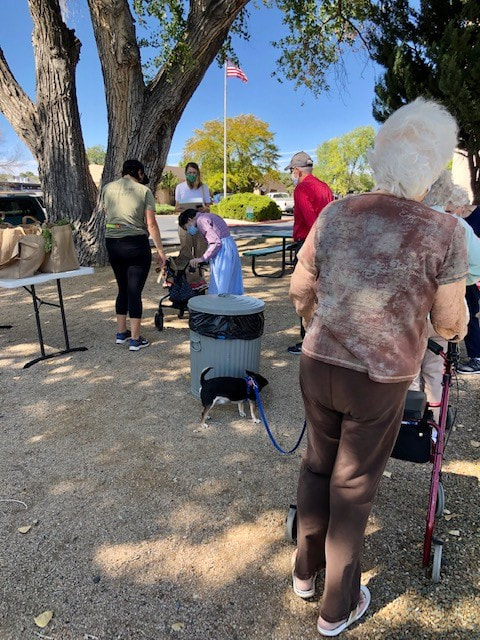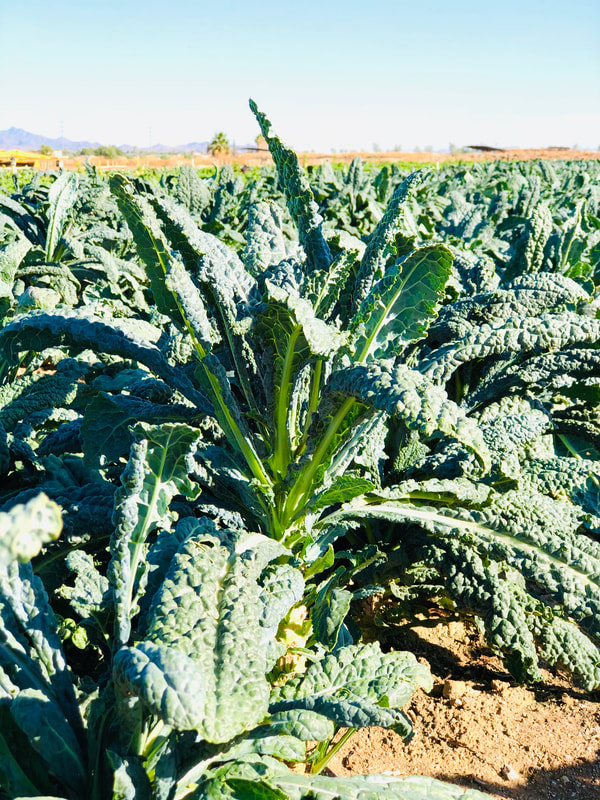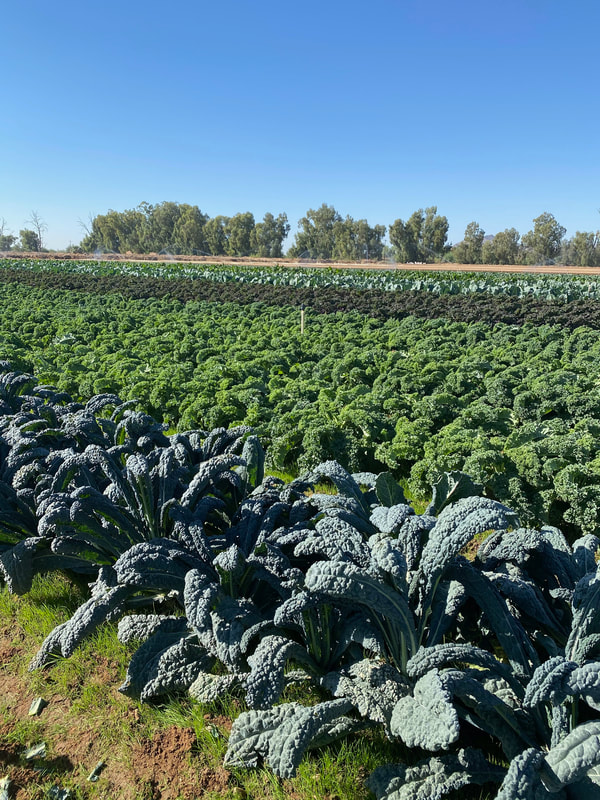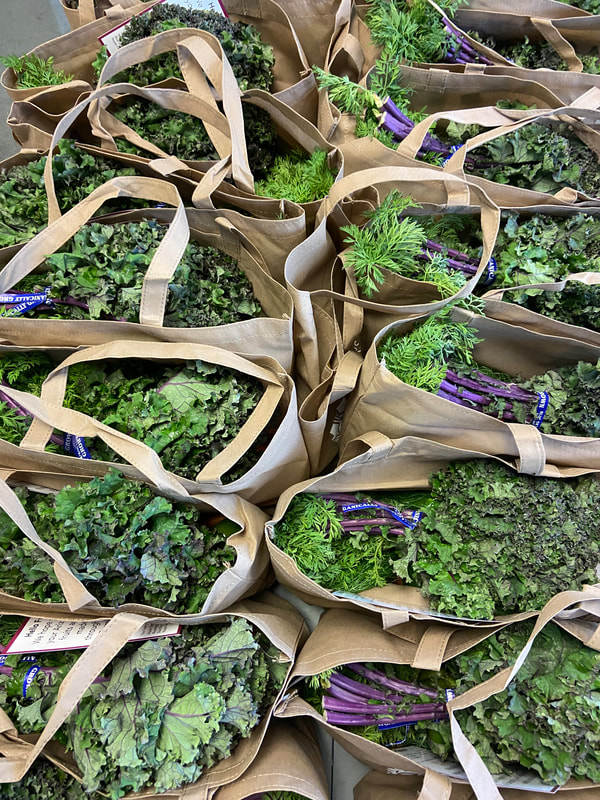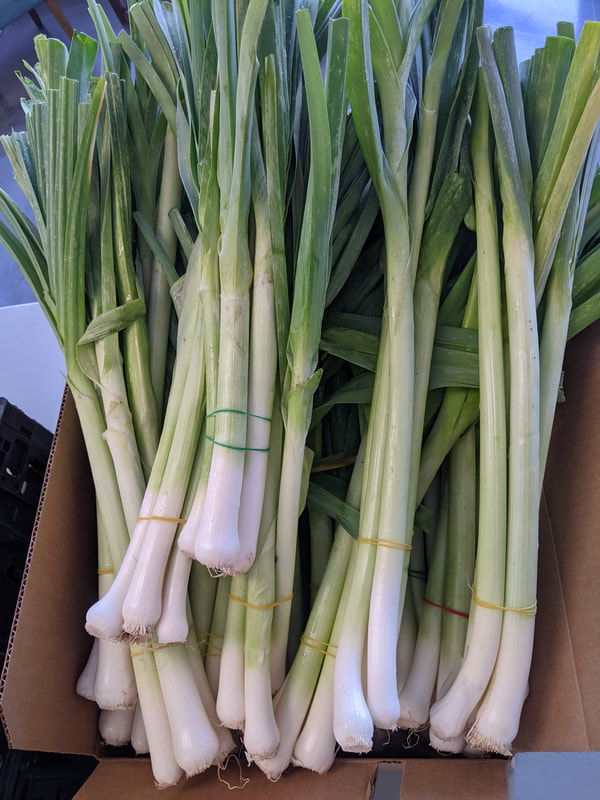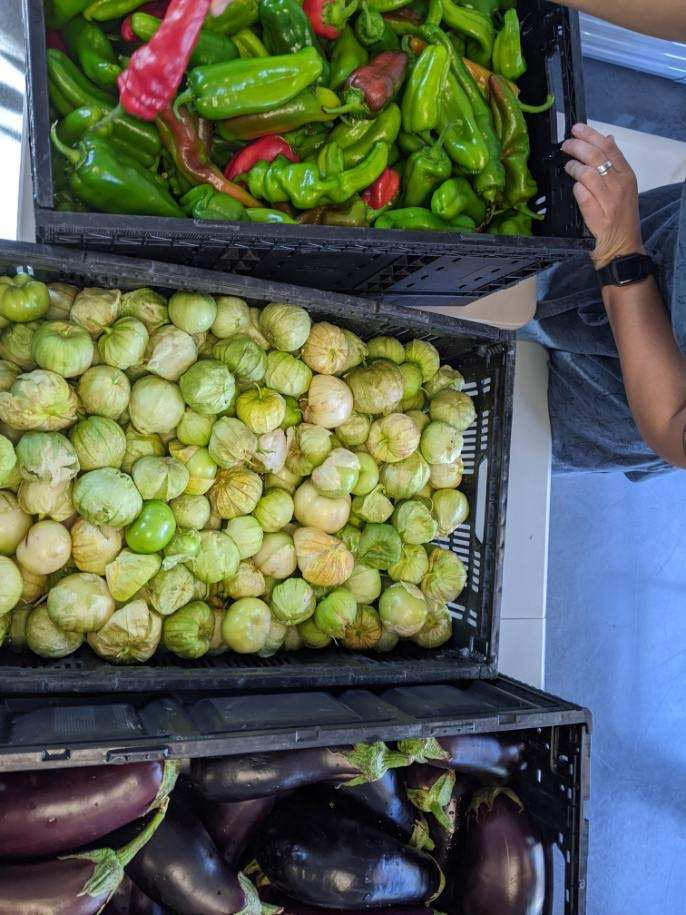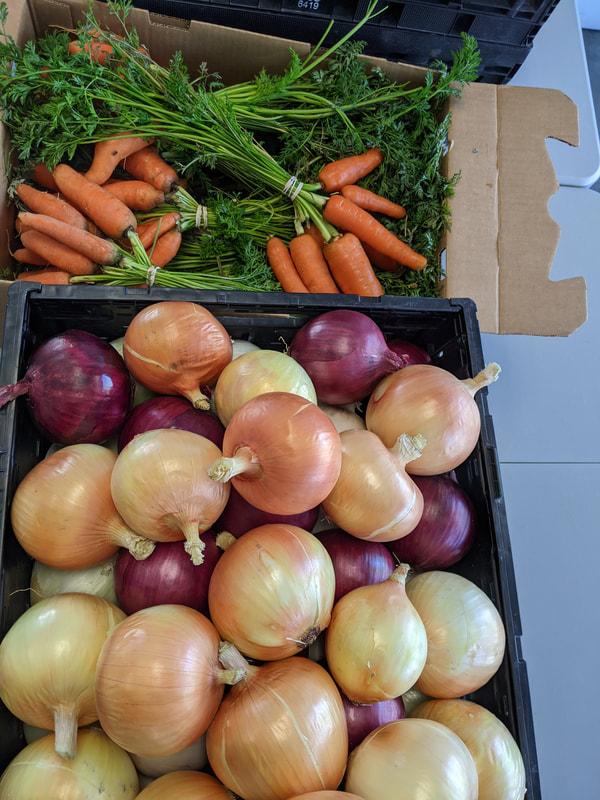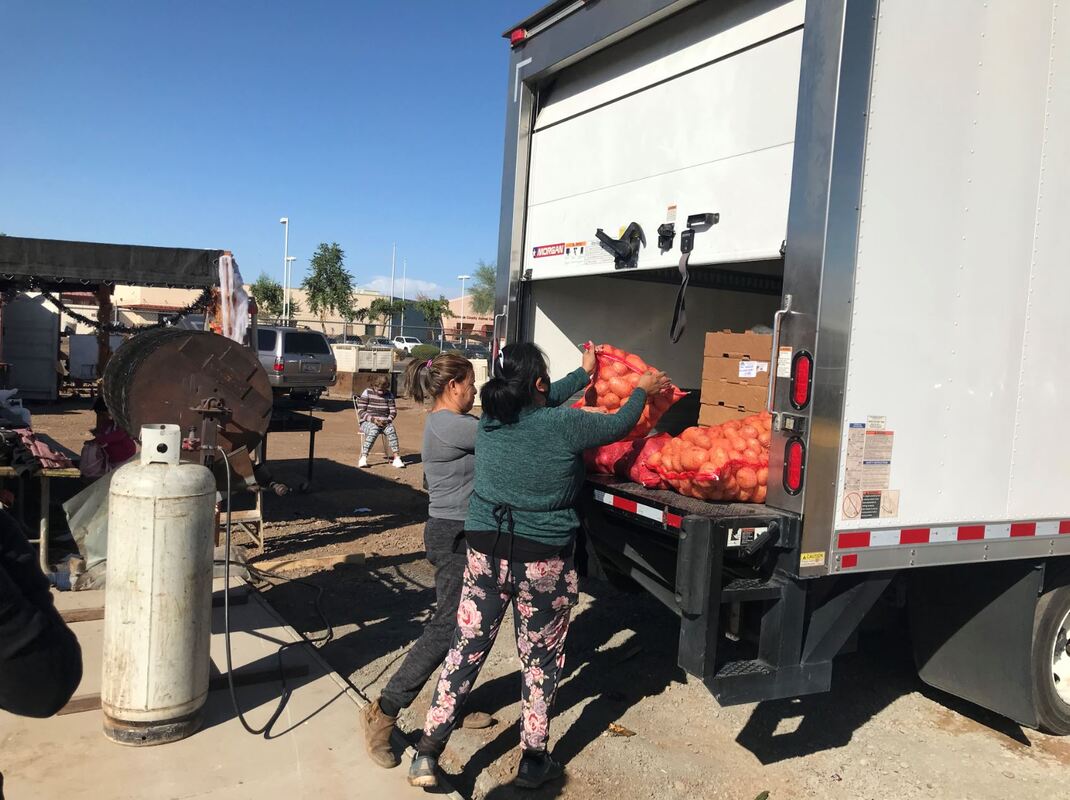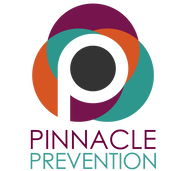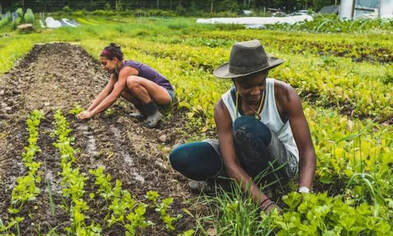 Photo courtesy of Soul Fire Farm - www.soulfirefarm.org Photo courtesy of Soul Fire Farm - www.soulfirefarm.org April 16, 2021: Please keep reading for updates on BIPOC (Black, Indigenous, People of Color) grower debt relief made possible through the American Rescue Plan. USDA has published a Frequently Asked Question document (LINK to attached PDF – can this be hosted as an upload on our website?) which answers some of the most common questions farmers have raised so far regarding eligibility, notification, and process for receiving debt forgiveness. USDA has additional information on their website. Here is a recording and link from a recent listening session: ppt slides here. A few key takeaways from that listening session:
For important context about the impact of this overdue news on Black agrarian history, check out these two articles:
Please share this post across your networks to ensure that BIPOC producers across Arizona have information about this new resource. ###
2 Comments
“Sometimes I wonder if the Asian-American experience is what it’s like when you’re thinking about everyone else, but nobody else is thinking about you,” Yeun said.
|
| We're so happy to welcome Jessie Gruner back from maternity leave with our two new CIO's and friends, Hayden and Hardin. 👶👶 Jessie's Reflections: Having twins 8 weeks early in the middle of a pandemic has been a wild ride to say the least. But if 2020 taught us anything, it’s that we can all do hard things. Especially when we have help and support from our village. Brad and I have been so humbled by the love and support the Pinnacle team and our partners have graced us with as we welcomed Hayden and Hardin into the world. A very special thank you to my amazing team for picking up the pieces left by my very abrupt absence. My wish for the future is that we can normalize paid parental leave. At Pinnacle Prevention, we are incredibly lucky to have paid parental leave for 12 weeks. Being able to spend those first precious weeks caring for your baby (or babies!) and yourself, is such a priceless gift – the gift of time. It’s something I will forever cherish and be grateful for. Right now we are the exception to what should be the rule. So if you’re an employer, offer paid parental leave to your employees for at least 12 weeks. And if you’re an employee or a job seeker, ask for it! Jessie Gruner, PHD, RDN Director of Community Innovation & Supermom [email protected] |
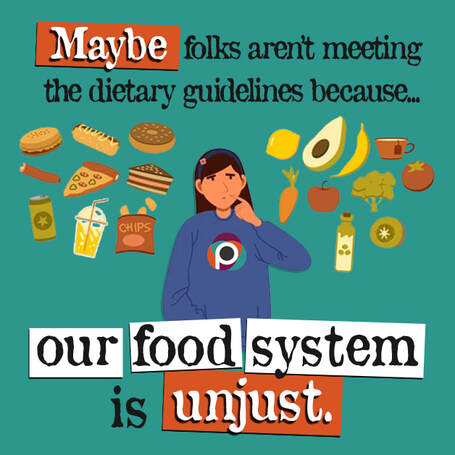
Have you heard? The new 2020-2025 Dietary Guidelines for Americans (DGAs) were recently released this past month. As we move into 2021, the timeliness and, also the irony, of the release of the guidelines is not lost on us. Timely, in that they were released just in time as 2020 turned to a close. And ironic, that the urge to focus on an ideal diet in midst of an awful pandemic - that is intimately intertwined with the longstanding injustices that are part of our food and health systems – with increased food insecurity, disruptions to our food system, political strife, and food worker injustices. The light of this context make the DGAs feel like a being offered a five-dollar coupon for an on-flight beverage after your luggage was lost and your flight was canceled. But, yet, despite these realities, our understanding of how we all SHOULD eat marches on.
The evolution of the science that goes into the DGAs is nothing to scoff at. This most recent guidance marks the 9th edition of the DGAs which have been released every five years since 1980. The process of what goes into the final document is extensive. Final guidelines are made following an extensive scientific review. The committee’s expertise and understanding of the dietary guidelines is well researched, understood, and evidence based, though it is worth noting that concerns related to food industry bias have been raised in the field.
It is also worth noting that the intent of the DGAs are in the interest of public health. The new DGAs state that key tenants of writing the guidelines are that it must: represent the totality of the evidence examined, address the needs of federal programs, reduce unintended consequences, follow best practices for developing guidelines, and use plain language. For many, these DGAs are useful for making functional food choices. In reality, humans don’t just eat for nutrition. Nobody will argue that nutrition matters; however, food is also a source of pleasure, of community, of family, of history and tradition, and life. Context also includes social and historical constructs and systems that influence choice, availability, and relationships with food. We hold in equal regard the context of eating as we do the nutrition the food provides. The complexities behind the reality of our relationships with food, and why we champion certain foods and vilify others are deep.
And there are consequences, unintended or not, from failing to include these contexts. From solely an individual behavior lens, research is continuing to mount on the impact of restriction and feeling restricted on our relationships with food with expectations that individuals should meet nutrient guidelines and patterns. Even expecting individuals to make nutrition the priority of every meal, greatly ignores the reality of life and role of psychology and environment in eating. Add in the context of poverty, food insecurity, trauma and loss of food traditions lecturing about healthy eating starts to feel like victim blaming. Our health, our diet, and wellbeing are intimately and intricately intertwined with larger systems that shape us. Things beyond individual responsibility and control. Deep rooted systems tied to historical and ongoing forms of racism, oppression, and poverty. There is design behind what is available to us and what shapes why we eat what we eat.
We are happy to see that there is recognition of the importance of reducing unintended consequences, but do these words have meaning or just a placation? The truth is, despite 40 years of increasingly detailed guidance, Americans are no closer to achieving them. The guidelines acknowledge that over time, eating patterns in the United States have remained far below the dietary guidelines recommendations. These trends are evident across all socioeconomic levels. So why are we offering slightly modified guidelines over and over every five years and expecting a different result?
What about holding the industry and systems that shape food choices accountable? Despite clear understanding of how increased sugar intake, salt and saturated fat impact health, food environments are no closer to matching the guidance. How can we expect Americans to prioritize nutrition when they are battling for basic needs, coping with injustice, and living in environments designed to add harm?
Obviously, this context matters. So, when sharing and interpreting this information, in the face of the many reasons behind why people eat what they eat, let us resist the urge to double down and smugly argue “eat less, move more.” Perhaps it is time to instead, look deeper into the contexts not included, to listen and revise our approach. In the context of moving into 2021, with the light on systemic racism, structural issues, and systemic traumas, it is time to shift power. Maybe folks aren’t meeting the guidelines because our food system is unjust. How about we stop putting the burden of meeting the guidelines on the individual when the guidelines are better targeted to the system itself.
We won’t see trends improve in meeting the dietary guidelines until the emphasis of meeting these guidelines is targeted back at not focusing on changing the individual, but rather changing the system.
We were able to deliver produce bags for seniors throughout the Valley by teaming up with:
St. Mary’s Food Bank in Surprise
Desert Mission Food Bank in north Phoenix
Justa Center in central Phoenix
Nourish PHX (formerly ICM Food & Clothing Bank) in central Phoenix
Azcend Community based in Chandler
Mercy Housing sites in Gilbert, Mesa, Glendale, and Guadalupe
We simply could not have served 1400 seniors without the dedication of so many individuals behind the scenes. From the Mercy Care Resident Services Coordinators, to the food bank directors, to everyone who helped unpack hundreds of bags from our van, many souls came together to provide delicious vegetable bags for our senior neighbors. #AZFMNP
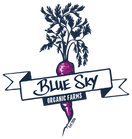
We were grateful to add their sturdy+tasty green kale, purple kale, and Swiss chard to senior FMNP produce bags, and it got rave reviews! We also want to thank David and Sara for their efforts to protect farmland, and encourage folks to sign up for important updates on farmland access in Maricopa County here: https://www.goodfoodfinderaz.com/save-farmland
You can find Blue Sky’s produce for sale at their farm store (4762 N 189th Avenue, Litchfield Park,85340) on Weds/Thurs/Fri 12-5pm or Saturdays 9am-3pm
or
Downtown Phoenix Farmers Market
RoadRunner Park Farmers' Market
Old Town Scottsdale Farmers Market
Uptown Farmers Market on Wednesday
Gilbert Farmers Market
They also offer Double Up Food Bucks Arizona at the farm store, and participate actively in Sun Produce Co-op. Be sure to follow them on Facebook and Instagram for fresh, organic produce updates.
Thank you Sara, David, and team!
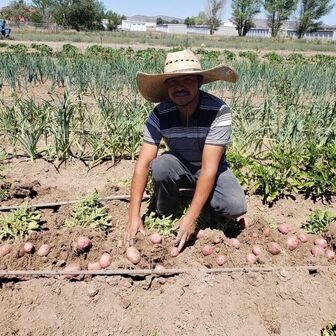
We enjoyed being able to tuck their cherry tomatoes, peppers, and greens varieties into seniors’ produce bags. We’re grateful to Maria and Cristian for their support and trust as we both gain experience in the wholesale arena.
You can find their fresh produce at the Prescott Farmers Market (winter hours Sat. 10am-1pm), Sedona Community Farmers Market et (winter hours Sun. 12-4pm), and Flagstaff Farmers Market.
SPC collaborated directly with Nourish PHX, formerly ICM Food & Clothing Bank to pack and distribute growers’ produce to senior CSFP participants. Cooperative growers who contributed to the seniors’ bags include Crooked Sky Farms, Blue Sky Organic Farms, Briggs and Eggers, Whipstone Farm, and RhibaFarms; a full list of SPC farms can be found on their website.
We’re so thankful that SPC and Nourish Phoenix could assist us with the logistics of moving hundreds of pounds of fresh produce, and hope that you support them on social media. Institutional, wholesale, and retail buyers, as well as restaurants and individuals looking for farm-fresh produce, should consider an SPC delivery!
Visit sunproducecoop.org for more information.
Pinnacle Prevention Blog
Follow our blog for tips, insights and conversations about healthy living.
Archives
June 2024
August 2023
May 2022
March 2022
November 2021
October 2021
August 2021
June 2021
May 2021
April 2021
March 2021
January 2021
December 2020
August 2020
July 2020
June 2020
April 2020
March 2020
August 2019
April 2019
March 2019
February 2019
January 2019
December 2018
November 2018
October 2018
September 2018
August 2018
July 2018
June 2018
May 2018
April 2018
March 2018
February 2018
January 2018
December 2017
November 2017
October 2017
September 2017
August 2017
July 2017
June 2017
May 2017
April 2017
March 2017
February 2017
January 2017
December 2016
November 2016
October 2016
Categories
All
Active Living
Activity
Agriculture
Bicycling
Bike Lanes
Biking
Body Image
Breastfeeding
Community
Complete Streets
Environmentally Friendly
Family
Family Friendly
Farm Bill
Farmers
Farming
Farm To School
Food Security
Food Systems
Food Waste
Health
Healthy Habits
Heat
Hiking
Holidays
Hunger
Kids
Legislature
Local Economy
Malnutrition
Nonprofit
Nutrition
Outdoors
Parks
Policy
Public Spaces
Public Transportation
Resources
Safety
Schools
Self Care
SNAP
Staying Active
Sustainability
Trails
Transportation
Volunteer
Walkability
Walking
Women


